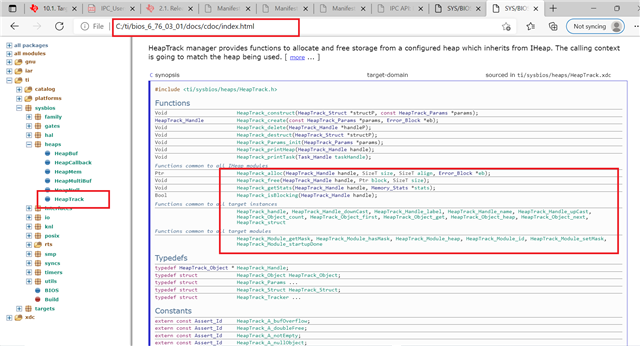Other Parts Discussed in Thread: SYSBIOS
Hello,
I am working with a version of a TI library (IPC) that has a known memory leak. I built a new version of the library using a newer IPC which claims to have
patched the memory leak along with a newer version of SYS/BIOS which also claims to have fixed a double mfence() issue.
My colleges are hesitant to change over to this new library I generated and insist upon seeing the memory leak manifest itself in currently released firmware
which uses the old IPC library with the known memory leak.
I am not sure how to test for this.
I see threads here in the e2e forum which link to dead pages.
Is there any available information on using CCS and or the Debugger to search for memory leaks?
Thanks,
Forrest



